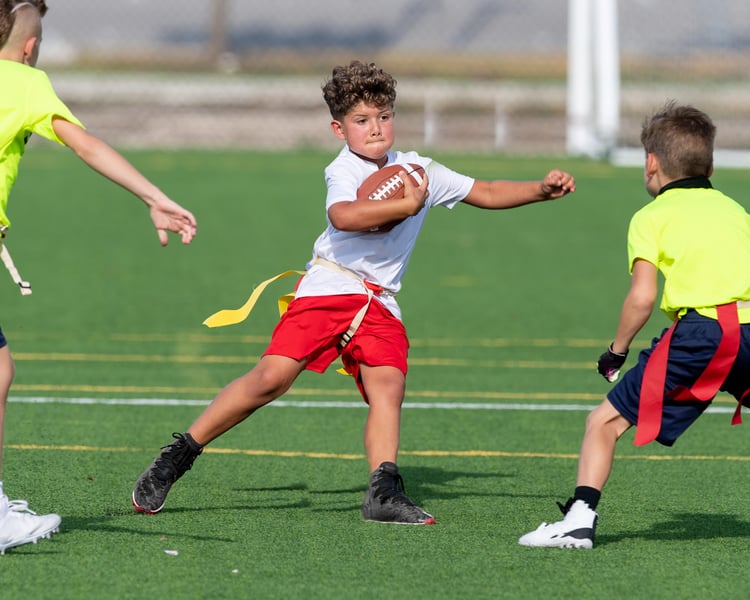Get Healthy!

- By Cara Murez HealthDay Reporter
- Posted October 7, 2022
Could Synthetic Turf Raise Kids' Odds for Injuries, Concussions?
At some schools, grassy sports fields have been replaced by easier-to-maintain synthetic turf.
But it turns out that may be more likely to cause player injuries.
Noting that synthetic turf football fields have been associated with more ankle and knee injuries, medical student Ian Chun studied differences in impact force between natural grass and turf fields.
He will present his findings Saturday at a meeting of the American Academy of Pediatrics, in Anaheim, Calif.
"Injuries in sports have always been an accepted consequence of play and competition but in recent years the national discourse around sports safety has changed," said Chun, a third-year medical student at the University of Hawaii.
"Armed with injury prevention strategies and better engineered safety equipment, sports continue to be exciting for players and audiences with the added benefit of better health outcomes for our athletes," he said in a meeting news release. "The emphasis on player safety is especially important for children as injuries sustained in developing adolescence may have longer-term impacts and unforeseen consequences."
Chun attached sensors to a mannequin that could measure the rate of deceleration as it hit the ground. Then, he compared the decelerating force between natural grass and synthetic turf high school football fields in Oahu, Hawaii.
The synthetic turf football fields had a greater impact deceleration. The study noted that this creates an increased risk of injury when a player makes contact with the surface. This could include increased concussion risk.
"Our findings show that when we consider safety in sports, we need to widen our view to include the spaces where we play," Chun said.
This research could help guide sports management decisions and create safer playing environments, he said. More study will be needed to assess all the risks of different playing surfaces.
Findings presented at medical meetings are considered preliminary until published in a peer-reviewed journal.
More information
Stanford Medicine has more on children's sports injuries.
SOURCE: American Academy of Pediatrics, news release, Oct. 7, 2022








